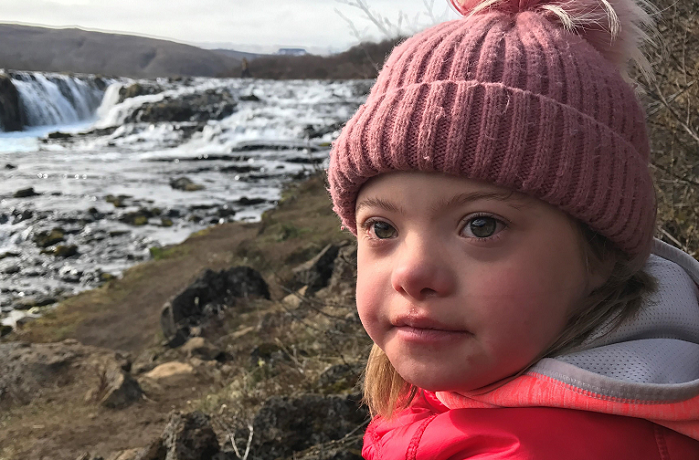October is Down Syndrome Awareness Month. “During October,” The Jerome Lejeune Foundation says, “we applaud caregivers, families, and medical professionals — but most of all, we applaud all the wonderful people with Down syndrome.”
A French geneticist, Dr. Lejeune, a devout Catholic and pro-lifer, discovered the genetic cause of Down syndrome. Tragically that discovery has been used and continues to be used to search out and destroy children prenatally identified as having a full or partial extra copy of chromosome 21.
However in 2017, we could say that the real Down Syndrome Awareness Month took place in August. For it was on August 15 that “CBS News: On Assignment aired a 10-minute story on Iceland–“’What kind of society do you want to live in?’: Inside the country where Down syndrome is disappearing”–as chilling a mini-documentary as you will ever watch.
Geneticist Kari Stefansson, in the most telling of words, says that Iceland, a nation of 330,000, has “basically eradicated” Down syndrome. On average there are just one or two children born with Down syndrome per year.
Actress Patricia Heaton responded with fury and keen insight:

Elaine Quijano was the CBS News correspondent who conducted the interviews with parents and geneticists and genetic counselors and people with Down syndrome. While others may differ, I thought she did a very admirable job of helping the viewer understand what is at work and what is being lost when virtually 100% of children with Down syndrome are aborted in Iceland.
Quijano interviewed a woman in her 30s with Down syndrome who is now living independently. She asked her, “For people who are listening and watching, what would you tell them about people who have Down syndrome?”
“It’s hard for me to say,” she responds. “They just see Downs. They don’t see me.”
Quijano interviewed Helga Sol Olafsdottir who “counsels women who have a pregnancy with a chromosomal abnormality” at Landspitali University Hospital where 70% of all babies are born.
They speak to her when deciding whether to continue or end their pregnancies. Olafsdottir tells women who are wrestling with the decision or feelings of guilt: “This is your life — you have the right to choose how your life will look like.”
She showed Quijano a prayer card inscribed with the date and tiny footprints of a fetus that was terminated.
Quijano noted, “In America, I think some people would be confused about people calling this ‘our child,’ saying a prayer or saying goodbye or having a priest come in — because to them abortion is murder.”
Olafsdottir responded, “We don’t look at abortion as a murder. We look at it as a thing that we ended. We ended a possible life that may have had a huge complication… preventing suffering for the child and for the family. And I think that is more right than seeing it as a murder — that’s so black and white. Life isn’t black and white. Life is grey.”
Of course the decision is black and white for the nearly 100% of babies with Down syndrome who are discovered and then aborted in. They are in the cross-hair of the “Combination Test,” which uses an ultrasound, blood test and the mother’s age, to “determine whether the fetus will have a chromosome abnormality, the most common of which results in Down syndrome.”
Just offering the test is, of course, a not-so-subtle nudge in the direction of having the test and almost all Icelandic women do.
There are a handful of women who have the test and don’t abort, or don’t have the test at all, or have an “incorrect” diagnosis. They have a very different view.
At age 40 Thordis Ingadottir was already the mother of two. The test told her the odds were 1 in 1,600 that she would have a child with Down syndrome. Quijano tells us
However, the screening test is only 85 percent accurate. That year, 2009, three babies were born with Down syndrome in Iceland, including Ingadottir’s daughter Agusta, who is now 7. …
Since the birth of her daughter, Ingadottir has become an activist for the rights of people with Down syndrome.
The piece ends with Quijano asking a keen question: “What do you imagine the future for your daughter to be?”
“I will hope that she will be fully integrated on her own terms in this society. That’s my dream.” She concludes
“Isn’t that the basic needs of life?
“What kind of society do you want to live in?”
sLifeNews.com Note: Dave Andrusko is the editor of National Right to Life News and an author and editor of several books on abortion topics. This post originally appeared in at National Right to Life News Today —- an online column on pro-life issues.








